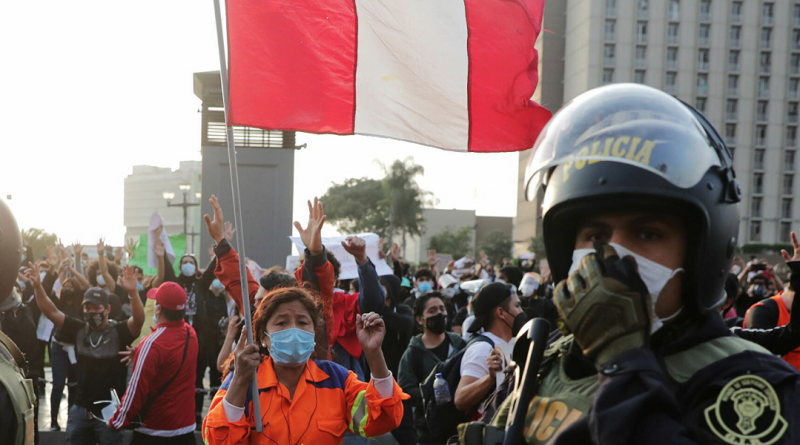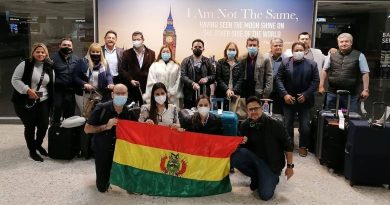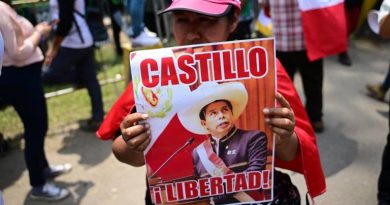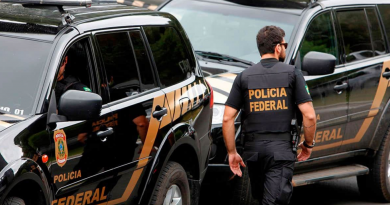‘None of the Above’ is Ahead in Peru Presidential Poll
A key United States ally faces a deeply uncertain election as a recent poll puts all of Peru’s presidential candidates in single figures ahead of the crunch elections on April 11th. Keiko Fujimori (Fuerza Popular), daughter of former dictator Alberto Fujimori, is joint first, alongside neoliberal candidate Hernado de Soto (Avanza País), both polling at just 9.8% each.
The survey was conducted by the Institute of Peruvian Studies for the La Republica newspaper and published on Sunday, April 4th. 21% responded by saying that they intend to either spoil their ballot or vote for ‘nobody,’ more than double what either of the front runners is set to achieve.
Fujimori and de Soto are followed by three other candidates within a statistical margin of error, leaving the race for the second round wide open. In third place is the religious ultraconservative Rafael Lopez Aliaga (Renovación Popular) with 8.4%, 4th place is held by centrist Yohny Lescano (Acción Popular) with 8.2%. Leftist candidate Verónika Mendoza (Juntos Por El Perú) holds 5th place with 7.3%.
Years of serious corruption scandals, implicating most of the current congress have destroyed trust in politics. All of Peru’s living ex-presidents have been charged (or are currently being charged) with corruption, including two of the immediate past presidents, Pedro Pablo Kuczynski and Martin Vizcarra.
The past year has seen a particularly deep crisis for the Peruvian state. The country is among the worst-hit by the pandemic and hit a new record on Saturday, April 3rd with 294 dead and 12,916 new infections in just one day. Their total of 1.5 million confirmed cases is quintuple that of next-door neighbor Bolivia.
Peru’s three rigid lockdowns have also wrought devastating economic damage. Just in the capital city, Lima, unemployment doubled in 2020 and the average worker’s wage fell by 25.6%. Before the current crisis, high growth figures masked a grossly uneven distribution of wealth, with 70% of the country still working in the informal economy.
The issue of corruption in politics spilled into a full-blown crisis in November 2020, when Congress voted to impeach President Martin Vizcarra, over corruption allegations. The vast majority of the population rejected the move, considering that the country was so close to elections and because the impeachment had been carried out by far-right interests and by a congress in which 68 of its 130 members are also being investigated for corruption.
An ‘interim’ President, Manuel Merino, was declared President in a legislative coup on November 10th, and lasted just 5 days as mass protests forced resignation, but not before his coup government’s security forces killed two young protesters, Inti Sotelo and Bryan Pintado.
Poor options
Another reason for the poor polling figures this year is the poor choice of candidates on offer. Keiko Fujimori was once widely popular, achieving 39.86% in the first round vote in 2016, riding on the coattails of the nostalgia from some for the right-wing authoritarian period under her father. However, a long list of corruption scandals has sunk her candidacy into single figures. As recently as March 11th, 2021, exactly a month before the upcoming elections, the prosecutor’s office presented charges against her for accusations that she received campaign funding from the disgraced construction company Odebrecht, as bribes for public works contracts.
Centrist Yohany Lescano is a former congressman who was suspended in April 2019 following sexual harassment allegations. Millionaire religious extremist Rafael Lopez Aliaga is a member of Opus Dei. He claims to practice celibacy and said in an interview that he beats himself with a metal contraption, every day, to repress his sexual desires.
The only progressive candidate within the top five is Verónika Mendoza of Juntos por el Perú. Mendoza proposes an agenda of nationalizing the country’s natural gas reserves and drawing up a new constitution on the basis of equality, environmentalism, and plurinationalism.
Though, Mendoza has been subject to fierce and continuous attacks in all of the country’s mainstream media with the usual discourse that ‘Peru will become Venezuela’ if she wins, and the much more long-standing false accusations of ‘terrorism’ (terruco is the term used in the Peruvian context) and links to the former armed group, ‘Shining Path,’ a smear leveled at any and all leftists for decades.
The crisis of democratic representation has been an almost permanent feature of modern Peruvian politics, but the past year has been one of the worst moments for the political class who have long been regarded as darlings of the U.S., who selected its capital to be the seat of the so-called ‘Lima Group’ alliance of the U.S., Canada, and hard-right Latin American governments, created with the sole purpose of isolating Venezuela to promote a coup against the elected government led by President Nicoáls Maduro.



